Civics Form Four Competency Questions and Answer All Topics
Download Free Notes based on Competency questions and Answers for Civics Form Four, Get Full Civics Form Four Competency Questions and Answer All Topics
FORM FOUR TOPIC ONE: CULTURE
QN. 1 You have been appointed by the head master of Runzowi secondary school to explain to the Minister for arts, culture and sports by giving five points, why culture subject must be taught at all levels of education in Tanzania OR You have been invited to attend the debate at Mtakuja secondary school and the motion state that “Culture in Tanzania nowadays is less important to our community. Being the member of opposing side, defend the motion with five points
CULTURE; refers to the total ways of people’s life in a given societies at a given time. It involves all behaviours, belief, arts and institutions of population that are passed down from generation to generation, codes of manners, dressing styles, language, religion and norms.
IMPORTANCE OF CULTURE
- Culture teaches the young people various things. It teaches the youth about various social values in the society such as languages, taboos and beliefs of the societies
- Culture serves as an identity of a particular society. One society can be identified from other societies or a nation from others.
- Culture helps to promote the unity among the people because some cultural values bind people together as one society
- Culture exposes the younger to those tasks similar of their elders due to the training which are given to both boys and girls concerning with proper morals of their societies.
- Culture serves as a means of providing enjoyment and entertainment. This is done through the presence of traditional music and dances, sports and games.
QN. 2 Ally and Musa were given the task to identify the distinctive features of Tanzanian culture, but they failed to do so. If you are required to help them, which five points will you consider?
FEATURES/CHARACTERISTICS OF CULTURE
- Culture is dynamics. Culture it changes according to the environment of the time and place. This is caused by the people’s interaction from different localities.
- Culture is adaptive. Culture is flexible; it can be adaptive by any person or group of people regardless of their cultural background. A person from one place with a certain cultural practice may adapt the culture of another place.
- Culture is transmissive. Cultural elements such as beliefs, values and customs can be passed from one generation to another generation. Transmission of culture may take place by imitation as well as by instruction through literature and oral tradition.
- Culture is interactive. Cultures interact and affect each other. One culture can interact with other culture and can influence each other, and when interacting one may either absorb the other completely or integrate within itself.
- Culture is symbolic. Culture acts as a sign that identifies people’s way of life. What is produced and used by a particular society symbolizes the culture of that society.
- Culture is complex. Culture is complex in the sense that, it is a system composed of different but related elements. It is not measured with a single entity, instead it is measured with varieties of elements that defines or identifies a particular culture.
QN. 3 Assume you are the one among of the members of cultural groups in Tanzania, give five different cultural elements that observed in our communities
ELEMENTS OF CULTURE are the smallest unit from which culture is formed.
ELEMENT OF CULTURE
- Tradition. These are experience of the past that that are inherited by the society. They include food, marriage, funeral, local brews and dancing. Tradition prepares young boys and girls for their future responsibilities as adult members of the society.
- Norms. These are rules that the society maintain in order to determine what is wrong and right and which are used to promote good behaviour in a community.
- Customs. These norms of conduct which are temporal as they change depending on prevailing situation in a society at a given time. Example of customs include shaking hands, hugging, bending down during greetings
- Language. This the system of communication used by community. Tanzania has more than 120 tribes with difference vernacular languages but all these tribes are unified by the Kiswahili language which is spoken in Tanzania. Kiswahili is our national language which is identified us wherever we are.
- Dressing styles/clothing. The way of dressing is differing from one society to another, depending on the nature of the culture. For instance, the dressing styles of the people live in coastal regions such as Tanga and Zanzibar are differing from the people live in Arusha like maasai society.
- Arts. Arts are expression which reflects feelings, attitude and levels of development of a given society. Arts can be into visual performance like sports, songs, dances and poems.
- Crafts. Crafts are related to technical know-how and experience in doing and making things. Craft are concerned with the making of things like sewing, pottery, basketry, sculpturing, building, drawing, etc.
- Values. Values are ideas that describe the correct and good that most members of the society share. Values are used by the members of the society to distinguish the desirable from undesirable, what is good and what is bad.
- Ideology. Ideology is a set of ideas about the social, economic and political organization of society as a whole. It contains ideas, purpose that a society should pursue. Ideology lay down the principle and condition to be followed by the people in a given society
- Beliefs. These are ideas that people hold to be true. They are sacred values that a society believes and they have no evidence to support them. Example the believe that sacrifices to ancestors can protect them from harm
- Symbols. These are representation that stand for something else. Usually symbols are materials objects which are used to represent an abstract reality example national flag
QN. 4 When we talk about culture, we look at its elements. As a Minister of Culture, Arts and Sports in Tanzania, prepare a talk to address the communities on how they can use them positively and change their life.
IMPORTANCE OF EACH ELEMENT OF CULTURE
- Language is used as the medium of communication between people in the societies. Also, language serves as an identity of a given society
- Tradition prepares the young boys and girls to make part in their responsibilities in the given societies as adult. Tradition unites people together at a time of problems and pleasure and share different ideas.
- Ideology provides a guideline to how people should live in a given place and time. Also, it serves as means for self-identification for individual and group as whole.
- Arts. Arts help us to express our feelings, attitude and events in a very enjoyable ways eg. Through songs, drama, pictures etc.
- Crafts. Provide the household materials such as furniture, pots and baskets which are used daily
- Cooperation promotes interaction of people in a given society. This help people to share various activities which contribute to fulfil the social activities such burials, wedding etc.
- Norms. Used to promote good behaviour in a society
- Values. Help the future generation to know how to escape from bad practice and evils in the society such as drug abuse, stealing and other bad behaviours.
- Customs. Help the society to adopt certain cultural values like dressing style, eating habits etc which are worth
QN. 5 Suppose you are the one among of the students of Haki secondary school who know the significances of culture in our daily life. Give five cultural aspects in Tanzania that should be preserved and maintained in a community
POSITIVE CULTURAL VALUES
- Respect. This refer to the polite behavior that a person has towards others, especially those who think are older or important to him or her. Children are taught how to respect their parents and elders. Every person in the society has the right to be treated with respect
- Cooperation. This is important in the society because it helps to bring unity and increase performance in different constructive activities for the benefit of the people.
- Caring of other people and property. Among people who may need special care in the society are children, old people disabled people and sick people. It is positive cultural values to.
- Good and proper dressing. Proper dressing helps to maintain the person’s personality. It makes people look smart and acceptable to other members of the society.
- Hard working. This is another positive cultural value, certainly because through hard working, the people in the societies able to produce more and better-quality goods and services in the societies
- Accountability and Transparency. This refer to the situation in which a person is held responsible for a certain task assigned to him or her and he or she may be expected to give satisfactory explanation concerning that task if there is any need to do so. Transparency for the matter it means openness or without secret.
- Honest. This refers to a state of a person being fair and trustful. It is another important cultural value that any society is supported to its members. If this value successfully imparted to the society, the immoral practices such as corruption and theft can less reduced.
- Patriotism. This refers to the situation in which one loved his or her country and is ready to protect his or her country in any means. Patriotism enables the members of a given country to participate fully in the development activities in their country. Because of the love for their country, people can even be ready to die for it.
QN. 6 Imagine you are a student of Mapinduzi secondary school who knows the significances of culture in our daily life. Give five cultural practices in Tanzania that should be abolished in a community
NEGATIVE ASPECTS OF OUR CULTURAL PRACTICES are cultural practices that have been proven that they cause problems in the society
NEGATIVE ASPECTS OF OUR CULTURAL PRACTICES
- Female Genital Mutilation. Female Genital Mutilation is a collective name which means the partial or total removal of the clitoris in the female reproductive organ (vagina). Female Genital Mutilation is a violation of basic human rights. This has been practiced by some societies in Mara, Manyara, Dodoma and Morogoro regions.
- Widow/ wife inheritance. This is the process of taking the one’s wife after the death of her husband. Inheritance of the widows is dangerous to one’s life. A number of the people who have such tendency have been affected with HIV/AIDS
- Early marriages and forced marriage. Early marriages are those marriages in which a person who gets married he or she does not reach the proper age of getting married. Normally, in Tanzania the suggested right age for marriage is 18 years and above. Early marriages are not required because they can lead to the increase of students drop out from school as they get married at a tender age. This can lead to the increase in the number of people who do not know how to read and write.
- Witchcraft. This belief may lead to the conflicts and harm in the family. This is common among some illiterate people. This has a great negative impact within the communities.
- Payment of high dowry. Dowry is the amount of money or materials given by a bridegroom to girl’s family as a sign of appreciation. However, some parents have a tendency of demanding high amount of money or goods. In this sense a girl is perceived as commodity to be solid and bought. This has caused some men to mistreat their wives.
- Preference of male children. Some tribes prefer male children that female. This tradition undermines the dignity of a girl from the beginning of her life.
- Food taboos. There are some societies who restricted the women, especially the pregnant women to eat a certain kind of food such as eggs and fish.
QN. 7 Suppose you are the community development officer. Explain to the community different measures that the government of Tanzania is taking to eliminate the negative social cultural practices in the country
MEASURES TAKEN TO ELIMINATE NEGATIVE SOCIAL CULTURAL PRACTICES
- Provision of mass education. Mass education has been provided to the people on the negative impacts of the negative cultural values.
- Improving women access to resources. There is existence of effort to improve the women access to resources such as land, cattle and forms of properties
- Enacting the strict laws. The government has enacted some laws for those who entertain negative aspects of our cultural values
- Provision of guidance and counselling. Guidance and counselling are provided to the young people so as to avoid the practice of bad social cultural values.
- Proper child care and upbringing. The parents and guardians have been insisted to ensure proper child care and upbringing in order to avoid the harmful cultural practices that affect the children
QN. 8 Suppose you have been given the chance to explain to a community, why the government of Tanzania is undertaking various measures to eliminate some negative cultural practices. Which five points will you most consider?
REASONS FOR PROHIBITING THE NEGATIVE CUTURAL PRACTICES
- Protection against sexual diseases. Some of negative cultural practices can lead to the spread of HIV/AIDS and other STD’s due to the actions such as reckless sexual behaviours, FGM etc. So, the government put the measures to eliminate these cultural practices in order to protects the communities from being infected with these diseases.
- To protect women from death. Some of the negative cultural practices such as FGM can lead to death to the girls and women due to prolonged bleeding. Also, inheritance of widow may lead to the death due to the infection of sexual diseases like HIV/AIDS
- To reduce social conflicts. Some of the negative cultural practices may lead to the various domestic conflicts due to the wife beating, forced marriages and finally divorce
- To retain the access to education. Some the negative social cultural practices such as early marriage may increase the possibility of high rate of illiteracy due to the young girls forced to get marriage and drop out from schools.
- To protect the human rights. The government put measures to eliminate negative social cultural practices in order to protect the human rights because, some of these cultural practices such as early marriages, FGM and payment of dowry violate human rights to women who are sometimes treated as the bought objects.
QN. 9 There are efforts which are put forward to break up the problem of gender discrimination in many communities. In the light of this statement, examine five customs that contribute to the gender discrimination in Tanzania
GENDER DISCRIMINATION is the situation in which one kind of sex is denied its rights and opportunities because of his or her sex category. For instance, some societies denied the right to get education to the girls and preferred the boys to get education.
CUSTOMS THAT LEAD TO GENDER DISCRIMINATION
- Patriarchal societies. These are societies in which all aspects are run by men. In this, only men are the decision makers and holder of the power over the women.
- Excluding women from decision making in social, political and economic matters as well as in a family level.
- Taboo. Taboo are social cultural practice that prohibit a particular practice. In some societies pregnant women are prohibited from eating some food with adequate nutrient like eggs, meat, milk and some fish
- Payment of bride price. Some people considered that, payment of dowry is like buying of that girl or woman, thus the women were put under the control of men.
- Denying women to own property. In some societies, the girls and women are not allowed to own the properties or to inherit any property such as land, cattle and houses after the death of their parents
- Segregation in work place. In some society’s women are restricted from doing some profession. For instance, it is only recently that women have been accepted to do military activities. This is due to perception that the army is only for men who are physically tough and strong and not women who are weak.
- Initiation of ceremonies. Initiation of ceremonies including jando and unyago for boys and girls. In these ceremonies base the teachings provided to boys are quite different from those given to girls. For example, among other things taught to boys is educate them how to exhibit masculine behavior such as dominance, confidence, strength and competition while, girls are taught to exhibit feminine behavior such as submission, caring, sensitivity.
QN. 10 Currently, many of sub Saharan countries in Africa put the efforts against the problem of spreading of HIV/AIDS. As an expert from TACAIDS organization in Tanzania, identify five cultural practices in the country that lead to the spread of HIV/AIDS
CUSTOMS THAT LEADS TO SPREAD OF STIs AND HIV/AIDS
- Female Genital Mutilation (FGM). FGM can lead to the spread of HIV/AIDS because the instruments used are not sterilized and are used by the whole group being circumcised
- Widow/wife inheritance. This can lead to the spread of HIV/AIDS and sexual transmitted diseases. This practice is very risky for both a man and woman who is inherited because, if one of them is infected with HIV or STD’s it can be easily transmitted to his or her partner.
- Polygamy’s. This is the tendency of marrying many wives.
- Traditional dances. Also, in some societies, certain traditional dances are accompanied by drinking alcohol. This is dangerous because it can draw both men and women to engage in reckless and unsafe sexual intercourse
- Local traditional midwives. In some societies especially in rural areas, the women who undergo delivery they meet with the midwives who are not well trained. This may lead to the spread of HIV/AIDS to both mother and a newly-baby born due to the using unsterilized instruments.
- Cutting tribal marks. Some tribes cut the tribal marks on the parts of the body of their members such as kids that they want to shed off the dirty blood. This is dangerous because one knife can cut several members of the society
QN. 11 Consider yourself as an officer from the Ministry of Health, explain to the community five traditional practices that affects the reproductive health of the women in Tanzania
REPRODUCTIVE HEALTH is the health which is required by the people especially women in order to ensure safety in the reproduction. Culture has great influence on sexual and reproductive health. This is due to the fact that, the cultural practices shape sexual behaviours and reproductive health in a given society.
CUSTOMS THAT AFFECTS WOMEN REPRODUCTIVE HEALTH
- Female Genital Mutilation. FGM affects the reproductive health of a woman because it disturbs the vagina elasticity during delivery due to the scars left behind after circumcision.
- Early and forced marriages. Early marriages affect reproductive health to a girl because it brings complication during delivery due to the immaturity of the reproductive organs such as hips.
- Food taboos. Food taboos affect reproductive health to a woman because some societies deny women to eat certain kind of food such as fish and eggs. This may cause poor nutrition to a woman which lead to a poor health.
- Wife beating. In some of the societies, wife beating is a part of traditional culture. Wife beating may cause physical injuries to a woman which may cause poor health
- Wife inheritance. Inheritance of a widow affects the reproductive health of a woman. This contribute to the spread of HIV/AIDS as a result affect woman during pregnancy and delivery
QN. 12 Many of the women in Sub Saharan countries who went delivery neglect the reproductive health education. Suppose you are the clinical officer from Mtakuja health center, explain the advantages of having the knowledge of reproductive health to the maternal women in Tanzania
ADVANTAGIES OF REPRODUCTIVE HEALTH EDUCATION
- Prevention of sexual diseases. The knowledge of the reproductive health helps in prevention of sexually transmitted diseases and unwanted pregnancies to the women
- Promotion of gender rights and equality. Reproductive health education promotes the gender rights and equality between male and female especially in the reproduction matters.
- Improvement the health of women. The knowledge of reproductive health improves the health of women’s safety during pregnancy and during delivery
- Regulating women’s fertility. Reproductive health knowledge enables a woman to be capable in producing offspring and retain the condition of being fertile in reproductive system
- Prevention of major child diseases. The reproductive health education helps a mother to identify the major child diseases which affect the babies. This will decrease infant mortality rate in the country.
QN. 13 The form four students of Gulioni secondary school will compete in a school debate with the motion which state that “neglecting reproductive health brings many problems to the women in Tanzania” Suppose you will be invited to propose the motion, which five points will you consider? Or Assume you are the health program coordinator in 6 regions of Tanzania, explain how the community would be affected if the reproductive health education would be neglected?
IMPACTS OF NEGLECTING REPRODUCTIVE EDUCATION
- Infection of sexual diseases. The lack of the knowledge of the reproductive health may lead to infection of sexually transmitted diseases among the women in a community
- Reduction of gender rights and equality. Lack of the reproductive health education demotes the gender rights and equality between male and female especially in the reproduction matters.
- Deterioration the health of women. The lack of knowledge of reproductive health lead to the decline of the health of women’s safety during pregnancy and during delivery
- Decrease women’s fertility. Neglecting the reproductive health knowledge decrease the capability of a woman in producing offspring and retain the condition of being fertile in reproductive system
- Failure to prevent major child diseases. Neglecting the reproductive health education decrease the ability of a mother to identify the major child diseases which affect the babies. This will increase infant mortality rate in the country.
- Increase death
QN. 14 Although the reproductive health education is neglected by many people in a community, but it has significant role in improving the health of women and children. By giving five points, elaborate the factors that can be taken to improve the reproductive health to the women in Tanzania
MEASURES TO IMPROVE REPRODUCTIVE HEALTH
- Prevention of bad cultural practices like early and forced marriage, female genital mutilation, food taboo etc
- Provision of reproductive health education. This would help people to be aware on the importance of reproductive health
- Prevention of abortion. This will help to avoid unnecessary death of pregnant women
- Application of family planning method. This may assist to ensure healthier motherhood
- Prevention and treatment of sexual transmitted diseases. This will help to ensure safe good health condition among the community.
- Establishing clear reproductive health policy. Having clearly stated policy on reproductive health it would help to establish strategies that would support to improve reproductive health in the society.
- Establishing health centres in each village. This can ensure the availability of reproductive health services near the community
QN. 15 As an expert from the national arts council of Tanzania (BASATA), use five points to convince the community on the need to preserve and promote a Tanzanian culture
PROMOTION OF CULTURE is an act which involves the raising and encouraging the progress and growth of our cultural values in our societies.
PRESERVATION OF CULTURE is an act of protecting our cultural values from being damaged and interfered with other culture.
IMPORTANCE OF PROMOTING AND PRESERVING OUR CULTURAL VALUES
- To maintain our national identity. Cultural values are worthy to preserve and promote because they constitute people’s identity of their nation.
- To provide a foundation for stable governance. The cultural values must be promoted and preserved because they are the foundation of the society, the source of unity and continued existence of people in a given culture.
- To maintain our useful value and equality. Cultural values are worthy to promote and preserve because they have the potential to minimize or eliminate segregation and bring equality among the people
- To maintain our cultural heritage. Cultural values are worthy to promote and preserve because they help to protect our country from foreign culture through cultural heritage.
- Helps to identify what is good and what is bad. Cultural values are to be promoted and protected because they are basis of what is right and what is wrong
QN. 16 Despite of heavy efforts from the government, Tanzania still suffer from the problem of neglecting the promotion and preservation of our culture. Give five points to explain the root causes of this problem
CHALLENGES FACING THE PROMOTION AND PRESERVATION OF OUR CULTURE
- Colonial legacy. Many Tanzanians are victims of praising the foreign culture. They still have the attitude of being inferior to the white men.
- Lack of awareness. The large numbers of people are not well informed on valuing their culture. Many of the people regard our culture as a primitive way of life and sufficient to solve their problems
- Poor leadership. Some of the leaders are not committed to the task of promoting and preserving of our culture. Hence, they have failed to establish the policies which can promote our cultural values.
- Shortage of financial resource. This problem limited the people and government to conduct research concerning with the promoting and preserving of our culture.
- Globalization. This was due to the development of science and technology. The interaction among the people in the world brought different cultural interaction and history as well as the beliefs. This contributing in the hindrance of our culture. A good example can be observed in the wedding ceremonies and burial ceremonies.
QN. 17 The government of Tanzania is now focusing on adopting the promotion and preservation of her culture to meet with the challenges that face many people in the country. As one of the experts from Ministry of culture, Arts and sports, suggest five factors to be undertaken to ensure the achievement of that goal
MEASURES/WAYS OF MITIGATING THE CHALLENGES FACING THE PROMOTION AND PRESERVATION OUR CULTURAL VALUES
- Decolonise the African mind. This can be done through education
- Africanise the learning process and content. This will help learners to learn from the realities of the life of African context
- Enact policies and plans. That will guide the promotion of our culture
- Promotion the use of our national language. National language should be spoken by all people in the country and should be used in school as the medium of instruction from lower level to higher levels of education
- Protect our handcraft industries against foreign good. For example, promoting the consumption of the good produced by SIDO. This will make people to consume the goods which are manufactured in the country.
- Encourage positive traditional dances. Traditional dances should be assisted in composing and recording. People must be encouraged to understand their traditional dances which are valuable in their life.
- Promotion of local culture in mass media. All the medias in the country such as radio and television should undertake necessary actions to popularize our positive cultural practices in the country.
- Considering the arts and crafts skills in the educational curriculum. This will help the students in various schools to understand the various arts and craft skills which will be able to appreciate and preserve them.
QN.18 The new head master of Haki secondary school found that, there are many damaged tables and chairs in the store room of the school due to the absence of department that deals with the maintenance of the school properties. As a form four student, assess five advantages of having the department of maintenance in your school.
CULTURE OF PREVENTIVE CARE AND MAINTENANCE refer to a system of planning maintenance which involves inspection and making necessary modification so that properties can be used for a longer period. Maintenance involves timely repairing of property before it gets damage completely. It also involves the system, processes and manpower required to manage the life cycle of all acquired properties. The main objective of culture of preventive, care and maintenance of personal and properties is to make people able to practice the attitude of preventive care and maintenance of personal and public properties as the part of daily life.
IMPORTANCE/ADVANTAGIES OF HAVING DEPARTMENT OF MAINTENANCE
- Ensure safety and protection of the properties. Department of maintenance will make regular maintenance of the properties and protect them from unnecessary damage
- Reduces the cost of major repair. It saves money for other expenses that could have been used for the purchasing of other properties that are needed by the people.
- Conserving environment. It helps to preserve the environment in a community by reducing the pilling or random throwing dumping of the damaged properties of the school
- Promote tourism. Maintained properties remain in good condition, thus attract people to make tourism if the preserved properties are higher values to both local and foreign tourist.
- Inheriting the properties to the next generation. It enables people to inherit the properties to them young ones or to the future generation for the future use. This help to reduce the cost of buying new properties.
- Ensure good conditions of the properties. It helps to keep the property in a good condition for a long time, hence the properties seem to be profitable to the owner and users.
QN. 19 Suppose you have been appointed as the head of department of maintenance at Sali’s Company Limited, explain five ways that you can apply to ensure the caring and maintaining the properties of the company.
WAYS OF ENSURING PREVENTIVE CARE AND MAINTANANCE OF PERSONAL AND PUBLIC PROPERTY
- Cleanliness of the property. There must be regular cleanliness of a property in order to make it clean and attractive to the people. So, in order to ensure caring of a property, regular cleaning is needed.
- Making frequent inspection of the property. There must be make frequent checkup of a particular property in order to discover the leakage and weakness of a particular property
- Regular repairing of the property. The regular repairing of a particular property minimizes the cost of repairing the property. So, in order to ensure caring of a property, regular repair is required.
- Making frequent maintenance of a property. In order to ensure caring of a property, frequent maintenance is required that creates conducive environment to users.
- Good supervision and monitoring of the property. Properties should be monitored even if they are still in good condition
- Provision of mass education. The people should be educated on the importance of making regular care and maintenance of the existing properties so as to ensure and prolong the life span of the properties.
QN. 20 In the process of assessing the school properties, the headmaster found that, there is the weakness in the department of maintenance. Use five points to explain the problems that can be happen due to the neglecting timely care and maintenance of the school properties.
EFFECTS/IMPACTS OF NEGLECTING TIMELY REPAIR AND MAINTANANCE OF PROPERTIES
- Damage of property. Neglecting timely maintenance of properties such as building, machine can lead to damage of these properties. Hence increase the cost of repairing the damaged properties or sometimes it can lead to completely destruction of properties.
- Low productivity. Failure of timely repair of property such as machine, vehicles leads to low productivity. This is because unrepaired machine cannot work efficiently leading to low productivity.
- Loss of manpower. Due to improper maintenance of properties such as building, machineries, vehicles which cause accident, injuries and death of people.
- Negative cultural impression. Neglecting maintenance of a property reduce the quality of a particular property and make it can make the property less attractive to the people.
- Disappearance of some important information. Neglecting timely maintenance of a property may lead to the loss of the important information and various properties.
- Environmental destruction. Neglecting timely maintenance of a property can lead to the environmental destruction due to the random throwing of the damaged property
- Reduce the life span of property. The failure to make maintenance to neglected property decreases the life span of a particular property which may in turn necessitate the loss of property or unplanned buying new one.
- Increase the cost of repairing and maintenance of the property. Neglecting timely maintenance may lead to the increase of the cost in repairing a particular property. Timely maintenance of a property reduce cost in repairing and increase long life of a property.
QN. 21 Courtship is a result of positive relationship among the people in a society. In five points, explain the factors that should be considered for good courtship among the couple
COURTSHIP is a formal and special kind of intimate relationship between a man and a woman that may lead to marriage.
FACTORS FOR GOOD COURTSHIP
- Considering the sex of courting partners. In order to make good courtship, it must consider the sex of the courting partners. The partners (couple) must be of opposite sex (man and woman or boy and girl)
- Maintain abstention in the relationship. It is important to take into consideration the abstinence between the courting partners. Abstinence should dominate the relation. No sexual intercourse before marriage
- Observing legality of the relationship between the courting partners. It is important to consider the legality of the courting partners in order to avoid the confusion in a community. The relation should not be questionable by the family members of both sides
- Considering the common interests of the courting partners. It is important to consider the common interests between the courting partners. The courting couple must have the common interests such as religion background and common hobbies.
- Considering the age size of the courting partners. The age of couple should not less than 20 years and age difference should not too big. Example over 25 years means man has 45 years while woman has 20 year
QN.22 Many youths today are engaging in the courtship for the preparation of marriage. What five factors you think influence the youth to start this relationship?
FACTORS THAT INFLUENCE COURTSHIP
- Intention to marry. Intention to marry constitutes one of the motivations for courtship. Such intention not comes accidentally, it need time to think and feel from heart.
- Love. The purpose of marriage should be really love when the couple get slowly know each other. Love is understood as a profound adoration and affection for another person.
- Willingness. Willingness means readiness and preparedness to do something and it plays a very important role in influencing courtship. The courting couple should be prepared to get marriage at all conditions.
- Moral maturity. The moral maturity of a person contributes to the courtship. A person who is morally mature is aware that, dating is neither safe and desirable nor justified by society.
- Age and biological maturity. Age and biological maturity are important considerations for courtship. The intention of courtship is to prepare partners for marriage, such practices should be limited to mature person at least in terms of affording basic livelihood and ability to provide for the family.
QN. 23 Assume you have given the chance to advice the courting couple in your family as a way of preparing good marriage. What five advantages of courtship will you most consider?
IMPORTANCE/ADVANTAGIES OF COURTSHIP
- It is good preparation of marriage. Courtship makes the courting couples to prepare themselves for good marriage. This is because there are lot of things to be done before marriage by couple, relatives, neighbours and even friends.
- Helps to know each other before marriage. The time for courtship is important for the couple to get to know each other better and have an understanding of their partnership
- Develops understanding and acceptance. One of the important elements that contributes to the success of a relationship is understanding and acceptance. Because courtship allows the partners to know and value each other, it consequently gives them time to settle and moderate their differences.
- It develops self-discipline of the partners. Courtship provides the couple with an opportunity to develop self-discipline. Without self- discipline, a man or woman can be disqualified by their partner or members of the family.
- Formality. Courtship introduces a measure of formality into the new relationship. In a real sense, courtship is a semi-public announcement that the two people are exploring the possibility of future life together as husband and wife.
QN. 24“Courtship is one among of the positive relationship between two partners which make good preparation for the marriage”. With example from your community, describe five different challenges that can face the courting partners during this relationship.
CHALLENGES FACING PARTNERS IN COURTSHIP
- Differences in personality and attitudes. There are few partners who have the same understanding in all issues of life. Differences in personality and attitudes between partners may lead to misunderstanding and conflicts in their courting
- Character problem. Many people are not willing to work on the character problems and become better person. Some people believe that if they are in a relationship, they have to be accepted the way they are without considering how their lifestyle, characters and deeds may hurt their partners.
- Selfishness. Selfishness is one of the major challenges facing human beings in different life situations. Some courtships fail to prosper due to selfishness which often prevails in terms of inability to share plans and resources.
- Desire for pre–marital sex. It is important to understand that, courtship is not marriage. In that regard, the partners in courtship are not expected to start engaging in pre- marital sex
- Anger and bitterness. Anger and bitterness have done more harm than good in many relationships. Anger and bitterness often associated with lack of self-management skills, short-temperedness and ego
QN.25 Many youths in our communities today develop the dating relationship without legal agreements from their parents which sometimes cause many social conflicts in the societies. With examples from your community, explain five factors why this relationship is considered unacceptable in many communities in Tanzania?
DATING is the stage of romantic relationships typically between two individuals with the aim of assessing each other’s’ suitability as partner in an intimate relationship. However, dating may not necessarily lead to marriage. Partners can date and then go separate ways. Because of that dating is often discouraged in many societies. It is considered immoral and dangerous especially when it involves young people. It can lead to negative consequences such as unwanted pregnancies, distress and conflicts.
NEGATIVE EFFECTS OF DATING
- May lead to early pregnancy. Dating may lead to pregnancy when two dating partners engage in unprotected sexual practice. This may happen among students as well.
- Spread of diseases. Some teenage girls and boys are likely to be infected by sexually transmitted diseases after engaging in unprotected premarital sexual relationships. Unprotected sexual affairs may lead to the spread of such as HIV/AIDS
- Poor academic performance. Most of students may fail in their studies because they lack basic skills on self-management as they indulge in relationships at premature age. Consequently, they concrete on love affairs leaving behind school activities.
- Can lead to early marriage. Because of high rate of sexual desires to teenagers, they tend to persuade each other to sneak away from their homes or schools for sexual affairs, which finally leads them to premature marriages.
- May lead to depression. This situation occurs when the partners engage in conflict or in case of unplanned pregnancy. This condition makes someone unhappy and anxious and often prevents him or her from living a normal life.
- Drug abuse. Teenage dating may expose young people in the use of drugs and alcohol to fulfil their sexual desire
- Social disobedience. Premature relationship develops the habit of disrespect to the society. Some of the young boys and girls tend to disdain social issues and respect to parents and teachers because of ill perceptions on marital relationships.
QN. 26 The elders of Mchukuuni village were explaining to their youth in the village social gathering about how their previous societies used to find partners for marriage. As one among of the youth who attended there, identify five ways of searching for a lifelong partner you learn from your elders.
FACTORS TO CONSIDER IN CHOOSING PARTNERS
- Respect for people’s right and dignity. The selection of a partner to marry should not be carried out randomly and arbitrarily without paying attention to the essential elements that matter in a life of a couple. One of the tips that one should consider when selecting a partner is the attitude of respect.
- Possession of interpersonal skills. A loving relationship between partners is not a one-directional affair. It requires each partner to consistently share values, goals and life plans for mutual benefit.
- Moral integrity. It is important to consider moral integrity in selection of lifelong partner. A partner who has moral integrity, is a good companion. Moral integrity includes being honest, trustworthy, transparent, self-discipline and being accountable.
- Being comfortable with parents and family members. Partners in a loving relationship, are not in an isolation state. They must be concerned with respective members of their families who contributed significantly to their growth and development
- Intellectual capacity. A person’s ability to understand realities of life is essential in the choice of a partner. Some partners have very high capacity of understanding life challenges than others. In that situation, it is advised to choose a partner with good intellectual capacity.
- Ability to control anger and aggressiveness. Human beings are not perfect at all, they have some weaknesses. In a relationship each partner has strengths and weaknesses. Partners annoy each other sometimes because of bad arguments which cause tension and emotional distress. So, in the choice of a partner, it is important to select one who is capable of controlling anger and other negative emotions.
QN. 27 Suppose you have been invited as a guest speaker to give a talk about the importance of marriage in the Tanzanian context, with examples, elaborate what could be key points of your talk? Or. You have been given the chance to deliver talks to the maturity youth of Rungondi village on the advantages of being married. What your five points will you most consider?
MARRIAGE is a voluntary, legally and social authorized bond or union between man and woman to become husband and wife after fulfilling the required conditions. Marriage is the complete process which includes the acceptance of the parents of both sides and normally is accompanied with the wedding ceremony.
IMPORTANCE/ADVANTAGIES OF MARRIGIES
- Creates unity among the families. Marriage promote the sense of unity in solving various problems
- Help to raise and enhance status of the married partners. Marriage helps to maintain social status, norms, customs and tradition.
- Source of new relationship. Marriage creates new relationship in the family
- Source of getting children. Marriage brings new members in the community
- Helps to create social and economic cooperation among the married partners. Marriage creates common find between husband and wife
QN. 28 In many communities in Tanzania today, there are various marital and domestic conflicts due to the absence of stable marriages. Briefly explain by giving five points the criteria for testing the degree of stable marriage in a society
STABLE MARRIAGE is the marriage which all its members are maintaining the condition of marriage. Stable marriage exists where the couple is united under the rules of marriage.
CONDITION FOR STABLE MARRIAGE
- Consent. Agreements between bride and bridegroom on what they expect to achieve in the marriage
- Trust each other, none of them should do things that are contrary to the expectation of the other
- Love each other. Marriage partners must have affection for each other. Love is an important component of a stable marriage
- Tolerance and understanding towards the weakness of other
- Transparency. Marriage partners should be open with each other. It is wrong to keep secret which may endanger the marriage
- Trust. The couple should trust each other, none of them should do things that are contrary to the expectations or raise doubt to the other
QN. 29 In many developing countries in Africa, there is the problem of existence of early marriages. As an activist from Legal and Human Rights Centre (LHRC), explain customs and beliefs that encourage early marriage in Tanzania
CUSTOMS AND BELIEFS THAT ENCOURAGE EARLY MARRIAGE
- Payment of bride price. Bride price is a gift receives the parents of a girl in terms of money, livestock or land. This convinces parents to be greedy hence force their daughters to marry in immaturity age.
- Maltreating the girls who live within the families. This may encourage Early marriages because the girls who are maltreated may not able to tolerate such treatment hence decided to get marriage to leave the family
- Gender discrimination in education. Some educating boys rather than girls and some parents believe that, educating girls is wastage of resources. The parents forced their girls to drop out from school in favour of their brothers. After leaving school, the next step for girls is usually marriages.
- Tradition initiation. Traditional practices such as “unyago” prepare the girls for marriage because it taught the girls how to take care of a marriage at early age. This makes them to know that they are grown up hence married at immaturity age.
- Inheritance of the properties. In some societies do not allow a boy to inherit a property if he is not married. This encourages some boys to enter into early marriages as a condition of inheriting the property.
- Ignorance of some parents. Some parents marry off their young daughters because they do not know the dangers of earl marriage that may encounter their young daughters.
- The beliefs of living the descent life. The belief of married early lead to the living the descent life. Some society believe that if young will late to get married will involve into prostitution.
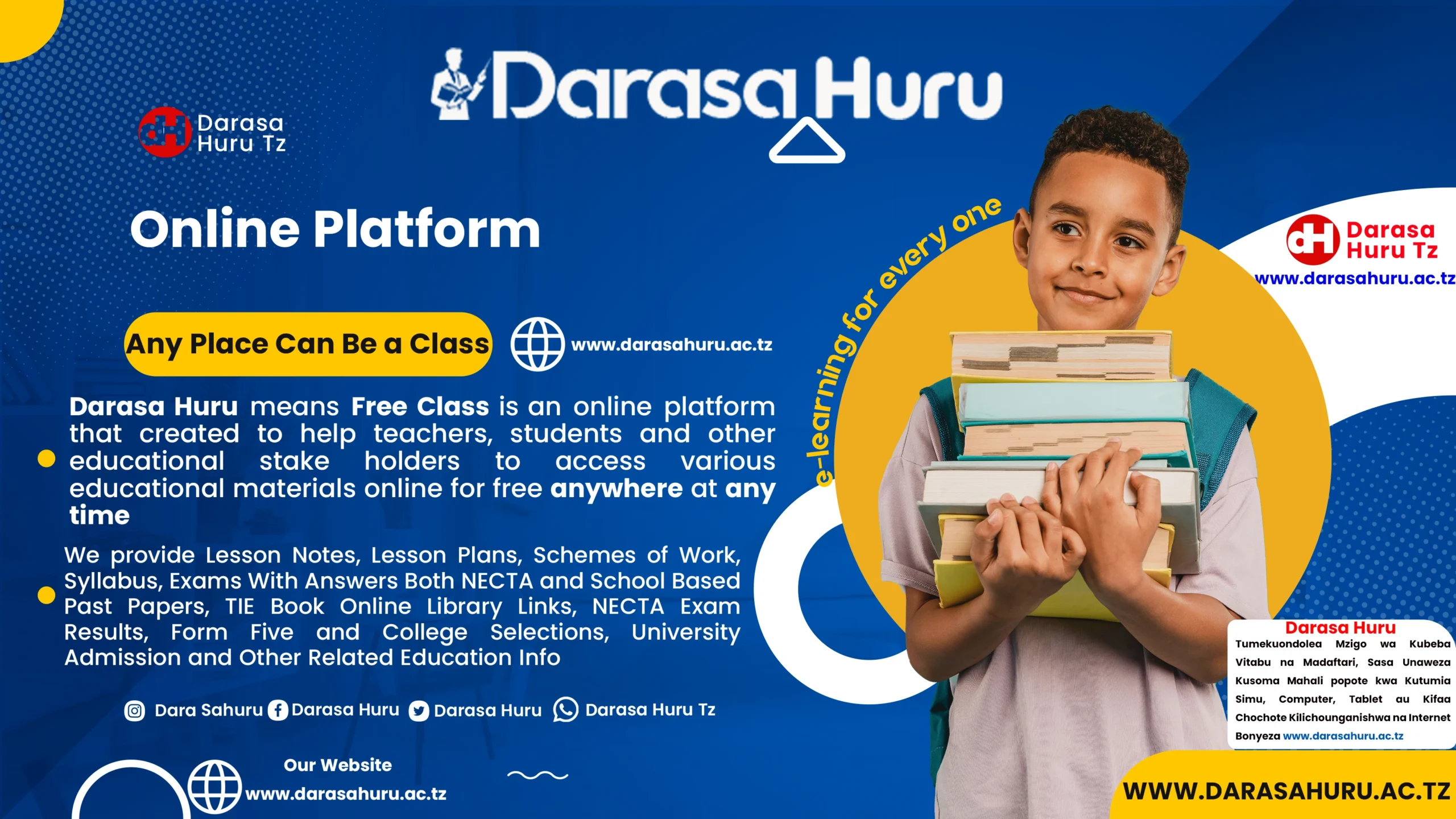
TOPIC TWO: GLOBALIZATION
GLOBALIZATION refers to the increasing process of connectivity and interdependence of the people in the world through economic, social, cultural and political components in the world.
QN.1 Many of the people in African countries have the little knowledge of the term globalization because it comprises many aspects of peoples’ life. If you are to deliver talk on the driving forces of globalization to your community, which five driving factors will you consider?
DRIVING FORCES OF GLOBALIZATION
- States. Both developed and developing countries creates international governmental organization and give them powers to regulate and coordinate their relations under global partnership organisation such as the United Nations (UN) were created by states.
- Technology. The development of science and technology has enabled the technologists to design and innovate many things like machines which simplify human activities. It marked the initial stage of integration between Africa and the external world
- International Organization. These are the organization that conduct activities in different countries. The coordinate and promote environmental conservation and settle disputes. Such organisation includes, International Monetary Fund (IMF), World Bank (WB), World Trade Organization (WTO), Amnesty International etc.
- International mass media and social network. Mass media and social network facilitates the exchange of culture and information among countries through international news broadcasting, television programs, films and music. Example of media includes British Broadcasting Corporation (BBC), Reuters, Cable News Network (CNN). Social media like Tik tok, Facebook, You Tube, WhatsAPP, Instagram, Thread have global reach audience.
- International rule and laws. These include treaties, convention, policies and the general principle of laws. They are responsible for setting standards norms and principle of monitoring, regulating and govern state interaction in the area of environment, human rights, justice, trade and security.
- Education. Education has contributed much to the development of science and technology and integration from the distant areas. Advancement of education marked intensive integration of people in universities, colleges and internal educational conferences. Through these interaction people adopt some culture from other people.
- Social liberalization. Social liberalization is widely spreading due to the advancement of information and communication technologies. The availability of modern communication devices like Tv, modern mobile phones (smartphones), computers (desk top and laptop) simplified the communication between people in the world through international network (internet)
- Political liberalization. Politically, the integration of politics in the global scale has fostered the development of globalization. Previously, politics have been undertaken within national political system, but due to globalization, the national governments have ultimately responsible for maintaining the security and economic welfare of their citizens as well as protection of human rights. Nowadays in most African countries which conduct general election there are the presence of external supervisors to watch the process of election if it was conducted free and fair environment.
QN. 2 Globalization in many African countries has both advantages and tears to many people in the community. With reference to Tanzania, assess five factors that indicate the aspects of globalization to the least developed countries in Africa.
ASPECTS OF GLOBALIZATION
- Information and communication technology. Advancement of information and communication technology has caused the global distribution of media images through computers, radio (home theatre) mobile phones (smart phones) etc. All these brought the modern communication technologies
- Movement of people. There has been the increasing of the movement of people from one country to another. The development of air transport enables people such as tourists, business men, scholar’s immigrant refugees to move from one continent to another and make the world interconnectedness
- Free Market economy. Globalization has brought the international political economy through international financial institution policies and international trade. In the free market economy system, there is little government interference in the process of buying and selling of goods and services
- Finance. There is the global flow of money often driven by interconnected currency. In foreign purchasing power depend on US dollar. The flow of money is also facilitated by the international monetary fund (IMF) and the world bank. Nowadays the foreign money exchange (FOREX) become the big deal in the different country in the world
- Democratisation process. Globalization has made democracy an agenda of all countries in the world. Things like openness, citizens participation, and less authoritarian society are insisted. Most countries over the world including Tanzania have adopted multiparty system.
- Privatization. This is the policy of transferring asserts and activities of public sector to private sector. Privatization has gained a wide spread and become an acceptable policy to government policy makers, service provider, and public planners.
- Trade liberation. This refer to the reduction of the tariffs and trade barriers to permit more competition and foreign exchange. Globalization insists on the removal of all trade restrictions such as taxes and tariffs to allow smooth operation of trade among countries.
- The rise of intellectual properties. The items like compact disc (CD) flash, memory cards and other properties may result from globalization.
- Spread of ideas and ideology. Spread of knowledge ideas, information and ideologies have been integral aspects of globalization. Direct foreign investment brings new skills in the global social, political and economic policies
QN.3 In five points, briefly analyze the impacts of economic liberalization policies to the people of Tanzania
ECONOMIC LIBERALIZATION/FREE MARKET ECONOMY is the state whereby the economic system is controlled by market forces of demand and supply of goods and services with limited control or intervention by the government.
IMPACTS/EFFECTS OF ECONOMIC LIBERALIZATION/ FREE MARKET ECONOMY
- It reduces prices of goods and services. Free competition in the international market usually forces competitors to reduce the prices of their products to win the customers.
- Promote economic, political and civil liberties. Free market economy contributes to economic, political and civil liberties because everyone has the right to choose what to produce and what to consume
- Improves creativity and efficiency in production. Free market economy contributes in improving creativity and efficiency in production which leads to production of better products and delivery of goods and services
- Facilitates growth of economy. Free market economy facilitates economic growth due to the absence of intervention and bureaucratic procedures from the government, this welcomes foreign direct investments
- Creates employment opportunities. Free market economy contributes in creating employment opportunities for a large number of people, in large- and small-scale companies
- May cause risk to the people and environment. Many companies are concerned with making profits regardless of the damage they cause to the environment, workers and consumers. Thus, this harm the health of people and environment.
- Decline of small-scale companies and businesses. Free market economy leads to the decline of small-scale companies and businesses that cannot compete in the global markets. This results in unemployment and loss of income to some members of the community
- It turns developing countries into dumping place for importation of foreign goods. Free market economy turns the developing countries into dumping places for second-hand goods and equipment from developed countries. This hinders creativity and innovation among people in any developing countries.
QN. 4 The students of Haki secondary school will compete in debate with the students of Nguvumali secondary school on the motion which state that “Privatization in Tanzania has more merits than demerits” If the students of Haki will propose the motion, what five factors you think the students going to explain?
ADVANTAGIES/MERITS OF PRIVATIZATION
- Improves performance and productivity. Privatization allows the privatized enterprise to be more efficient in production. This happens due to the fact that most of private firms are profit- oriented rather than service oriented.
- Improve customer services. Unlike public-owned enterprises that focus more on services, private owned companies tend to focus on profit. They strive to win customers in competitive markets by providing the best customer services
- Creating employment opportunities. Private-owned firms have financial ability through large investments in a wide range of sectors. As a result of these investments particularly in the industrial sector, the number of employment opportunities has been increasing and this enables government to generate revenues through taxes.
- Increasing government revenues. Privatization increases the government income through tax payment to the government. In addition, the growth of private sector has led to the improvement of various economic activities with the potential to contribute in government and telecommunication.
- Growth of economy in the country. Privatization boost up economic development as the collected revenue can be used for various development projects.
- Avoiding unnecessary political interference. Privatization is driven by profit making decisions rather than political decisions. This enables the sector to produce efficiently with the aim of generating profit
QN. 5 The Minister of Foreign Affairs of Tanzania was asked by the journalist from Azam media during her press conference. She was asked why Tanzania has joined various economic integrations. What do you think were five reasons described by the Minister?
ECONOMIC INTEGRATION is the legal and political process that comprises agreements between countries aiming at eliminating trade barriers, harmonizing monetary and fiscal policies and sharing comparative advantage for mutual benefits so as to fast tract economic growth. Examples of economic integration in Africa include; East African Community (EAC), Southern Africa Development Community (SADC), Economic Community of West African States (ECOWAS), Common Market for Eastern and Southern Africa (COMESA) etc.
REASONS/FACTORS/MOTIVES FOR ECONOMIC INTEGRATION
- Reducing the cost of the trade. Economic Integration is essential for reducing cost of trade. This is realized by elimination of tariffs among member countries.
- Increasing availability of goods and services. Economic integration enhances the availability of goods and services as a result of free movement of goods and services among member countries.
- Improving market efficiency. Economic integration leads to elimination of trade barriers and reduces the cost of production. It improves the quality and quantity of goods as well as market efficiency in the region.
- Exploring other non-economic gains. Economic integration provides an opportunity for member countries to explore non-economic opportunities such as cultural diffusion, intermarriages and exchange of other material culture within the member countries.
- Technological diffusion. Economic integration promotes technological diffusion. This is due to the fact that, free movement of goods and services among member countries can allow technology transfer and adaption in different sectors.
- Creation of employment opportunities. Economic integration creates employment opportunities as it promotes free movement of people and labour within member countries.
QN. 6 The discussion among the people in a community on the merits and demerits of globalization sometimes generate more questions than answers. In the light of this statement, explain five political and socio-economic advantages of globalization in Tanzania
MERITS/ADVANTAGIES/IMPORTANCE/POSITVE IMPACTS/EFFECTS OF GLOBALIZATION
- Effective utilization of the natural resources. Globalization facilitates free market economy and trade liberalization in the world. This stimulates much utilization of natural resources such as mining. There are many companies invested in the natural resources, for instance in Tanzania many companies invested in the mining like Geita Gold Mining. These companies they employ modern technology to exploit that natural resources.
- Increase employment opportunities. Globalization created employment opportunities to many people in the world. Various foreign companies employ people in the different sectors. Also, some people are engaged in self-employment due to the knowledge they have for example IT technicians who run their business through maintenance of computers’
- Improvement of quality of goods and services. Through sharing of technology, globalization brought about diversity in the products and services. It led to the increase of or flow of products from abroad to many countries.
- Widening of educational opportunities. Globalization has increased the need for different countries to in the world to share knowledge, skills and experiences across sectors. The availability of scholarships enabled many Tanzanian to study in different education institution in the world.
- Expansion of market. Globalization has made producers from Tanzania to access international market where they can sell their goods at good price. Access to international markets stimulates entrepreneurship among Tanzanians
- It created great impacts in financial market. Varieties of economies in the world have great access to funds since they now have better access to external borrowing. Trade in national currencies increased dramatically in the recent past to support the increasing levels of trade and investment
- It raised the national income of the country. Through privatization of public sectors and investment by foreign investors, the national income has increased through taxes paid to the government goods
QN. 7 Nowadays through globalization, there are social, political and economic interference among the people in the world. As a Civics expert, elaborate five negative impacts of globalization to Tanzania
DEMERITS/DISADVANTAGIES/NEGATIVE IMPACT/EFFECTS OF GLOBALIZATION
- Stagnation of local technology. The scientific and technological development brought by globalization has stopped the development of local technology. This has affected the Parten’s of production in Tanzania as a result the country has depending much on imported technology which is expensive.
- Moral decay. Globalization has increased social interaction of Tanzanians through mass media and online platforms like Facebook, zoom, WhatsApp, Twitter have increased the adoption of bad behaviour such as violence, prostitution, drug abuse, homosexuality and other related behaviors which increased as one become more integrated into global system
- It leads to increase unemployment. With growth of technology machines have greatly replaced human labor. For example, the introduction of electronic devices like computer technology and its programs have led to removal of many unskilled Tanzanians from their jobs
- It threatens national sovereignty. This is because international financial institutions and donor countries contribute to our national development, however, with harsh terms and condition. Such terms and conditions which include where, when, and how the fund is to be used.
- It leads to undermine African culture. African culture like language has been undermined by foreign languages such as English, French, German etc. English for example, has become a globalization language such that it is viewed by many Tanzanian who can speak it as a sign of civilization. By so doing our local languages including Kiswahili are being abandoned or left to be used by less educated people who also wish they knew English.
- It leads to unequal exchange. This arises because the demand of demand and price of most of primary goods and services are determined by developed countries. For instance, in Tanzania the demand of and prices of agricultural products such as cotton, coffee, cashew nuts are externally determined by the world market. Such situation leads farmers end up getting low price for their products. This limit the efforts to eradicate poverty in Tanzania
- Brain drains. Globalization has led the majority of competent Tanzanian experts like engineers, and doctors to move around the world seeking for well-paid jobs. This slows down the social and economic development in the country.
- Environmental pollution. Due to the constant emission of toxic gases from heavy industries of the developed countries. Also, high exploitation of natural resources due to advancement in science and technology has led to serious environmental destruction such as deforestation, pollution f air, water and land.
- Increase global warming. Due to gradual increase on temperature caused by emission of gases from industries and automobiles. These gases prevent the escape of heat from the earth’s surface to the atmosphere.
QN. 8 Globalization currently simplifies many things due to the application of science and technology. In the light of this statement, assess five challenges of globalization to the people of Tanzania
CHALLENGES OF GLOBALIZATION
- Lack of strong industrial base; Tanzania has weak industrial base mostly based on processing primary goods. As a result, Tanzania find it difficult to compete in the world market. Hence, remain recipient of manufactured goods from developed countries.
- Low level of science and technology; Technological advancement are important for Tanzania to benefit from globalization. Low advancement in science and technology in industries, communication and agriculture in Tanzania constrain its ability to successful realize its full potential under globalisation.
- Low level of use of communication systems. In Tanzania the use of global communication system, such as internet, communication satellites are still low and underdeveloped. Most communication systems are greatly confined in urban areas while the rural population which is bigger is still un connected with world communication system. This problem of uneven distribution of communication systems makes the rural population become isolated (marginalized) from a global village
- Low level of education; The level of education among Tanzanians is very low compared to other countries in the world. This level of education fails to meet intellectual demands of globalization such as technological skills, managerial skills, entrepreneurial skills, marketing skills, etc. Thus, Tanzania fails to compete in employment opportunities with other countries.
- Weak financial institution; Open and liberal system of capital movement are important in sustaining and securing benefit from globalization. Thus, developing countries have to restructure and reform financial institutions to respond to the changing environment.
- Low savings and investment; Low savings, caused by low income may prolong the vicious cycle of poverty among Tanzanians
QN. 09 Many people in the African countries face the challenges in globalization. Suppose you an expert of application of science and technology, propose five measures to be taken to address the challenges of globalization in Tanzania
MEASURES TO ADRESS THE CHALLENGES OF GLOBALIZATION
- Reforming financial sectors; Both public and private sector should strengthen the financial sector by making them more open and responsive to international environment.
- Improving industrial base; The industrial sector has to be improved by coordinating with other sectors. Such coordination’s are crucial for industrial sector growth and productivity.
- Improving technology; This can be done through improvement of vocational training education and strengthening the vertical linkage between such institution and economic sectors.
- Capacity building; This is through developing, promoting, and sponsoring various education and training programmes by allowing people to freely participate in exchange programmes under bilateral and multi-lateral arrangements.
- Strengthening regional cooperation; This will ensure mutual cooperation and sharing of economic benefit available in various regional integration.
- Prepare a conducive environment for investors; This will help to stabilize the economy. Attractions to investors must go together with conditions which will make Tanzanians benefit from foreign investments rather than being the watchers.
- Proper utilization of resources; Both human and natural resources so as to boost the economic growth. Tanzania has been experiencing shortage of personnel like doctors from Tanzania who are working abroad. This is improper utilization of human resources.





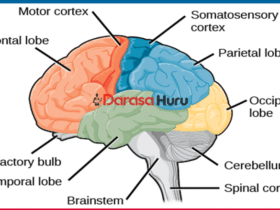




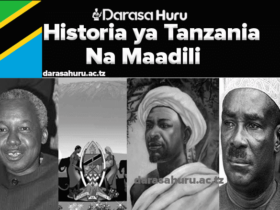
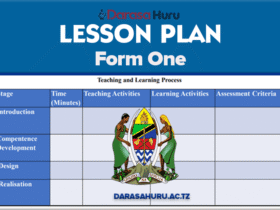

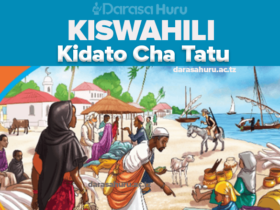



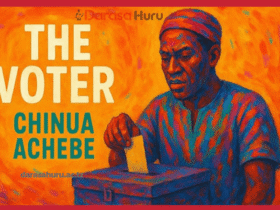


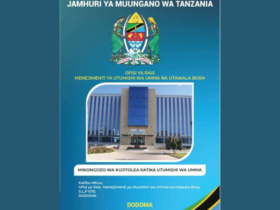
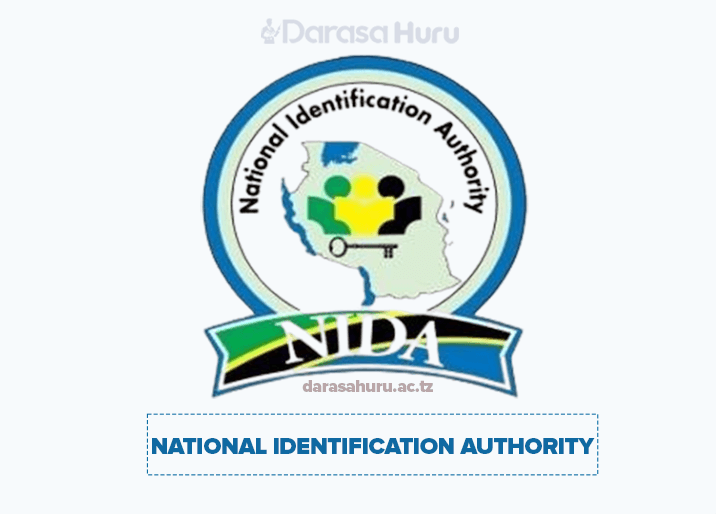






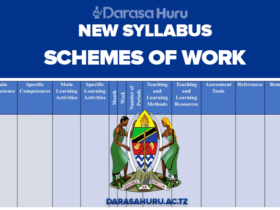






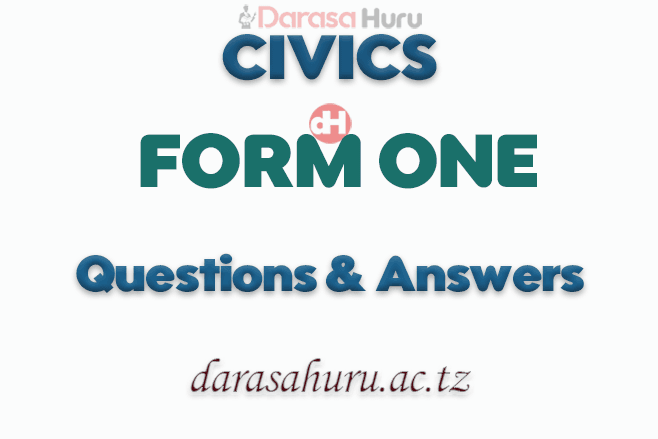

Leave a Reply